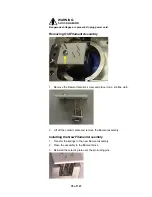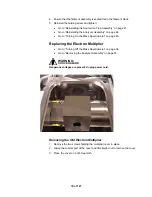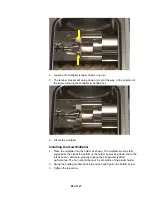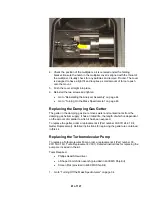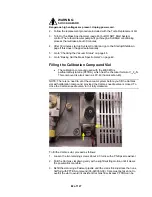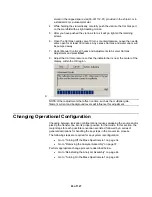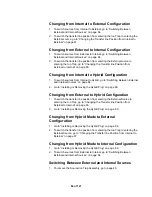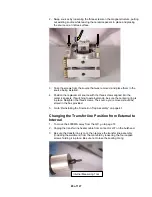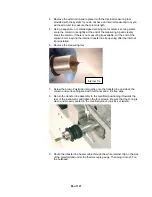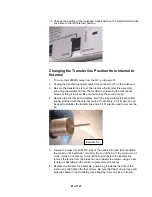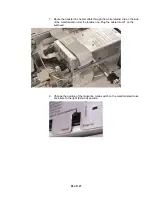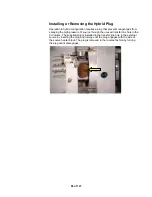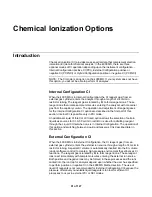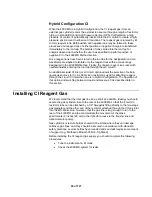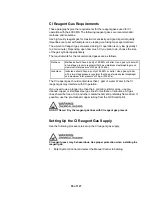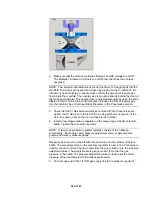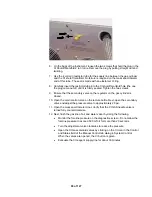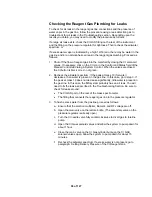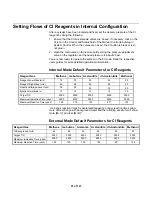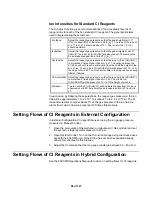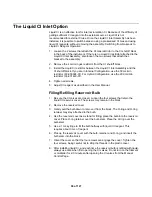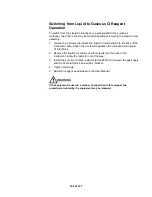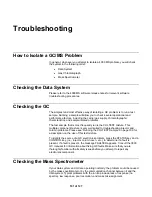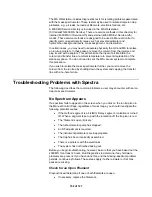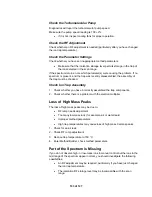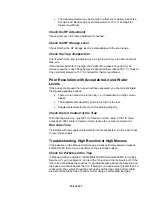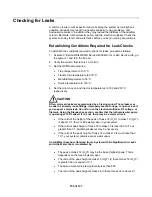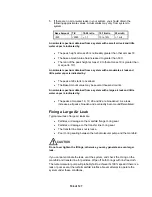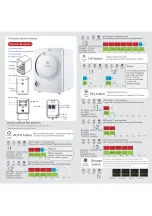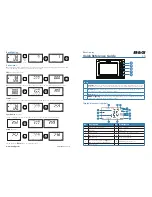
Chemical Ionization Options
Introduction
Chemical ionization (CI) provides mass spectral data that complement electron
ionization (EI) data for chemical analysis. In the 4000 MS, there are three
optional modes of CI operation depending upon the instrument configuration –
Internal Configuration positive CI (PCI), External Configuration positive or
negative CI (PCI/NCI) or Hybrid Configuration positive or negative CI (PCI/NCI).
NOTE: The CI mode is an option on the 4000 MS. If your system does not have
this option, you will not be able to perform CI analyses.
Internal Configuration CI
When the 4000 MS is in Internal Configuration, the CI reagent gas (from an
external gas cylinder) enters the analyzer through a length of a 4 mL/min
restrictor tubing. The reagent gas is ionized by EI to form reagent ions. These
reagent ions then ionize sample molecules entering the analyzer with He carrier
gas from the capillary column. The operation and adjustment of reagent gases
for the Internal Configuration CI option are described in the first part of this
section. Internal CI is possible only in PCI mode.
An additional Liquid CI Inlet (or LCI Inlet) option allows the selection of certain
liquids as sources for CI. A 50 mL/min restrictor is used for admitting reagent
through the Liquid CI Inlet when one is in Internal Configuration. The operation of
this option and switching between Liquid and Gaseous CI is described later in
this section.
External Configuration CI
When the 4000 MS is in External Configuration, the CI reagent gas (from an
external gas cylinder) enters the external ion source through a length of 4 mL/min
restrictor tubing. A special CI volume is automatically inserted into the EI volume
(under software control) to create a high-pressure environment that enhances CI
reactions. The reagent gas is ionized by EI to form reagent ions. These reagent
ions react immediately with sample molecules entering the external ion source.
Both positive and negative ions may be formed in these processes and the ions
carried into the ion trap for analysis depend upon whether the user has specified
to perform positive or negative CI in the 4000 MS Method section. The use of
liquid CI reagents is not recommended for External Configuration CI because the
pressure of relatively nonvolatile liquid reagents is too low for efficient CI
processes to occur in external PCI or NCI modes.
91 of 127
Summary of Contents for 4000 GC
Page 4: ......
Page 40: ...6 of 127...
Page 77: ...3 Check source connection pins for proper alignment and straighten as necessary 43 of 127...
Page 124: ...90 of 127...
Page 148: ...114 of 127...


